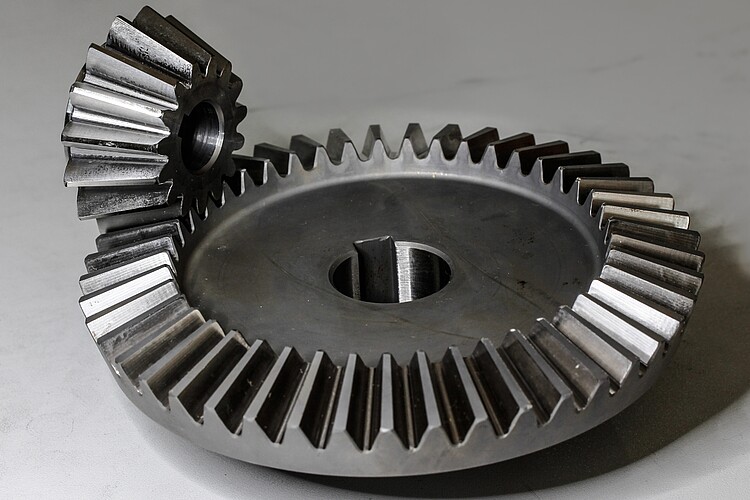Drop forging of coaxially arranged hybrid semi-finished products

| E-Mail: | massivumformung@ifum.uni-hannover.de |
| Year: | 2019 |
| Funding: | Deutsche Forschungsgemeinschaft (DFG) – SFB 1153 – B2- Fördernummer 252662854 |
The goals of the second funding period are, on the one hand, to expand the complexity of hybrid components and, on the other hand, to expand the range of materials. The additional complexity is examined using the example of a new drop forging process for an asymmetrical geometry based on a car wishbone. In addition, a variant of the bevel gear with several joining zones is being developed, which exploits additional lightweight construction potential by using an aluminum core joined by forming. In addition, partially coated semi-finished products are examined using the bevel gear demonstrator as an example, in which the wear-resistant layer is only applied locally in the area of the teeth.
The aim of expanding the portfolio of tailored forming material combinations is to determine the properties of hybrid components with new steel materials and a titanium alloy on the bearing bush demonstrator component and to build a process chain for the forming processing of these combinations. In addition, bevel gears with several welded layers as well as graded layers of reinforcing material are examined. The hypothesis, underlying these two approaches, is that the previously pursued approach to the forming processing of rotationally symmetrical components can be extended to those with more complex and asymmetrical geometry, as well as to new material combinations. Methods that were developed and tested in the first funding period can be used and further developed to design the heating and forming strategies and their precise implementation. It is assumed that the further developed numerical design and experience from the first funding period will make it possible to design tool systems that ensure the targeted control of the material flow in the production of complex components. In addition, inductive component heating can be designed in such a way that the forming properties of parts, made of different materials, are adapted to the requirements of the shaping process.




















